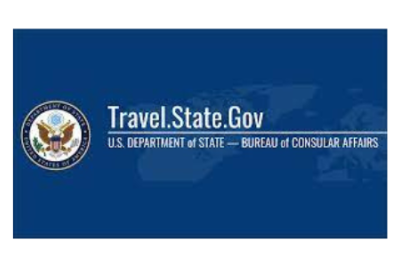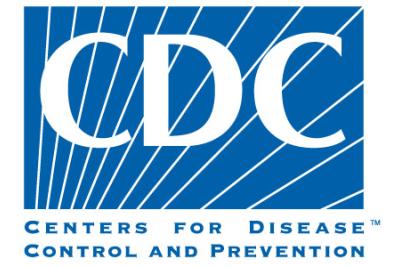
International Health, Safety, and Security
As a Tufts student, your physical, social, and emotional health and safety are the highest priority whether you are in Medford or abroad.
Tufts Global Education is committed to preparing you for a rewarding experience abroad. You will find critical health and safety information outlined below as well as links to additional resources. It is your responsibility to read through the materials provided here, from your program, and partner organization. Please discuss your international plans with your healthcare providers to create a personalized health and wellness plan before you go abroad.
Once you have committed to a program, Tufts Global Education and your international program partner will provide more extensive health and safety information as part of your pre-departure preparations. This will include our official International Health, Safety, and Security Guidelines and pre-departure meetings in which we discuss common health and safety challenges you might encounter abroad. You will also be required to complete the Pre-Departure for Tufts Global Education course in Canvas, which includes a health and safety module created by Tufts Global Operations.
Tufts Resources
International Health, Safety, and Security
COVID-19 Travel Information
International Travel Assistance Program
OEO (Office of Equal Opportunity)
CARE (Sexual Health and Safety, Assault Prevention)
U.S. State Department Travel Advisories
Approval of a leave of absence to study abroad on an external program applies to transfer of academic credit only; it does not imply an evaluation of current security conditions in the host country. For updated safety information, contact the program provider and consult the U.S. State Department website. Study abroad in countries with a U.S. State Department Travel Advisory level 3 or 4 in effect is subject to review by Tufts Global Education.
If you intend to study abroad in a country with a level 3 or 4 Travel Advisory, you should notify the Assistant Director for External Programs before February 1 U.S. State Department Travel Advisories can change at any time; therefore, our team reserves the right to review study abroad plans as needed.
Physical and Mental Health Considerations
It is critical to consider your physical and mental health as you plan for international programs. We highlight a few points below, but you will find much more extensive information in the International Health, Safety, and Security Guidelines shared with you once you have committed to a program.
If you would like to discuss any health concerns, we encourage you to contact to your healthcare provider.
Students attending Tufts Programs Abroad will be required to submit a Health Consultation Report; students on external programs should consult their program provider.
Physical and Academic Accommodations
If you receive approved accommodations from the StAAR Center and would like to determine if these accommodations are available during your time abroad, please be aware that the accommodations you currently receive do not automatically transfer nor are they automatically communicated to Tufts Global Education or external education abroad programs, and may not be available in your program location. You must do your research, as local laws and organizational policies may differ from those in the US and at Tufts (or peer institutions). If you intend to request accommodations for your time abroad, you must coordinate your request with StAAR (or your home institution’s Accommodations office for non-Tufts applicants) per the process and timeline that will be communicated to you during the application process. You must also prepare for the possibility that you may not receive the same type of accommodations, services, and academic support abroad as you do here.
You may choose not to disclose your accommodation information but please note that this decision will impact your program’s ability to provide on-site accommodations if disclosed or requested later.
Dietary Restrictions
Exploring the culinary offerings of a new country can be exciting and a central part of the experience. For those with dietary restrictions, careful planning and learning about your host country’s cuisine and commonly used ingredients are an essential part of preparation to ensure a safe and enjoyable food experience abroad. Here are some tips and resources to help you prepare before you leave:
- Inform the TGE advisors of your dietary restrictions so they can offer appropriate guidance and make arrangements to accommodate your needs.
- If you will be staying with a host family, make your dietary needs clear from the beginning (including on your housing questionnaire).
- If you have any medical dietary restrictions, work with your doctor to plan and pack all the necessary medications* for your time abroad and/or establish a plan to obtain them while abroad.
- Learn phrases that express your dietary needs in the language of your host country and create a translation card that clearly outlines your restrictions to show anyone offering food without an ingredients list (e.g., street vendors, restaurants, markets, etc.). Using explicit language such as “I can’t eat X” helps avoid miscommunication, particularly when certain food restrictions are not well known in other countries.
- Consult with your doctor or nutritionist to determine the easiest ways to accommodate your specific diet in your host country. Depending on location, it might be best for you to prepare your own meals as often as possible. In this case, it is essential to identify places to buy ingredients once you arrive and pack any food items that may be difficult or expensive to purchase there.* Your program staff may also be able to help you find restaurants and stores that cater to your dietary needs.
*If you intend to travel with medications or food, research the relevant laws as some medications or foods (particularly fresh produce or animal proteins) may not be permitted in your host country.
Medical Dietary Restrictions
Religious Dietary Restrictions
Vegetarian and Vegan Diets
Mental Health Abroad
Cultural adjustment and being in a new environment can have a major impact on your mental health and well-being. Access to mental health counseling services and medication may be limited (or non-existent) in some countries and the use of medication to treat mental health conditions is less common in countries outside the United States.
If you are under the care of a mental health professional, please discuss the viability of living abroad with your doctor and other health providers. You may wish to:
- Discuss aspects of international travel and intercultural living experiences
- Develop a plan to manage your health while abroad, including medications and/or therapy as needed
- Discuss the living arrangements
- Explore in-country support networks
- Meet with the StAAR Center to review accommodations if that is recommended
- Meet with your study abroad program staff pre-application and/or pre-departure to learn more about your designing your wellness plan
- Design a personalized self-care and wellness plan
Contact Tufts Counseling and Mental Health Service Tufts Health and Wellness Resources
Prescriptions and Medications
If you take regular medication you will need to be proactive in developing a plan for getting refills while abroad. Most health insurance providers limit the amount of medication that can be dispensed at one time, and many countries limit the amount of medication that you can take through customs. You may not be able to access the same medications while you are abroad. This must be researched and planned well in advance.
Drug laws vary from country to country. It is your responsibility to find out if a medication you need is legal and will be available in your host country. We recommend you speak with your doctor at least two months before you depart, as well as your program staff. You may also wish to check with your host country’s local embassy (listing of embassies worldwide). The following questions may help you plan:
- Can you legally enter your host country (and any countries you plan to visit) with your prescriptions?
- Can you have your prescriptions mailed to you? (Not all medications are approved to be mailed.)
- Can you have your prescriptions filled in your host country? (You will not be able to take a prescription written in the U.S. and have it filled at a pharmacy abroad, so it is important that you research whether your medications are available in your host country.)
Please refer to the International Health, Safety, and Security Guidelines for more information about prescriptions, over-the-counter medication, and birth control abroad.
Immunizations
Some countries require travelers to carry proof of vaccine for smallpox, yellow fever, cholera, and other diseases. Check the CDC travel website to learn which immunizations are required (or recommended) for your host country. It is your responsibility to learn of the immunization requirements for your host country (and any countries you plan to visit while abroad). Be sure to plan well in advance as some immunizations require several months prior to departure to deliver the appropriate dosage.
Tufts offers a wide range of immunizations, including the immunizations Tufts requires to register for classes and those needed for travel.
If you are going to a country that requires certain immunizations, you must carry an official record of your immunizations with you—often referred to as the “International Certificate of Vaccination or Prophylaxis (ICVP)”—that is approved by the World Health Organization (WHO). This form must be completed by a health professional. It is usually asked for when you enter the country, along with your passport and visa.
To find more information on vaccines, review Studying Abroad Health – CDC and Getting Vaccinated Before You Travel – CDC. See also: Traveling and study abroad vaccines.
Medical Coverage
Global Assistance and Medical Coverage
As a Tufts Global Education participant, you will have access to global assistance and medical coverage through Tufts’ global assistance provider, On Call International, at no additional cost. Services include urgent and emergency medical expenses, as well as medical and security evacuations. It does not cover preventative or routine care.
Learn More about On Call International
Domestic Health Insurance
Tufts Global Education requires that you keep your U.S.-based health and accident insurance for the period you are abroad. If you experience a significant injury or illness that requires medical evacuation, Tufts’ global assistance provider will work together with Tufts to assist with the evacuation. Once you are home, you will need to use domestic health insurance to cover you for any medical treatment you receive.
You have two options for domestic insurance coverage:
- Domestic Insurance
You will automatically be enrolled in the Tufts plan and the charge will be placed on your Bursar account. We strongly recommend that you subscribe to the Tufts plan, which covers you for one calendar year (September to September). If you choose the Tufts University plan, print your member card from the website, www.uhcsr.com/tufts and take it with you when you go abroad. Details of the plan, including claim procedures, are described on the website.
- Other Comparable Insurance
If you are not covered by the Tufts University plan, you must have adequate insurance, apply for a waiver through Tufts, and provide proof of coverage. If you are covered under the policy of your parents, be sure to address the questions outlined below.
-What type of coverage does my/this health plan provide abroad (emergency vs. urgent vs. routine)
-What are the eligibility requirements for this policy?
-Are pre-existing conditions covered? If so, is there a waiting period?
-If I become ill or am injured while abroad, how will the policy apply?
-Do I pay for services rendered and receive reimbursement afterwards?
-If I am unable to pay in advance for services rendered, will this policy provide assistance?
-Does this policy require a deductible? If so, how much is it?
-When does the coverage for this policy begin and when does it end?
-Does this policy provide coverage specifically in [country abroad]?
-Whom do I ask if I have questions about the coverage while abroad?
Learn More about Student Health Insurance Options
Sexual Misconduct and Title IX
Sexual misconduct (e.g., sexual harassment, sexual assault) can happen to anyone by anyone. The victim as well as the harasser may be any gender; the victim does not have to be of the opposite sex. Sexual assault and sexual harassment can come from someone you live with, study with, or interact with on a frequent basis. Those committing assaults and harassment are usually not strangers. Victims are not only the person who has been harassed but could also be anyone affected by the offensive conduct.
While you can never completely protect yourself from sexual assault or sexual harassment, there are some things you can do to help reduce your risk of being assaulted. It is important to remember that while we can take steps to minimize risk, the only person to blame when sexual violence occurs is the perpetrator.
If You Have Been the Victim of Sexual Assault
If you are in immediate danger or in need of medical and mental health care:
- Call On Call International 24/7 at +1 978-651-9216. Live chat and text-only options are also available (+1 844-302-5131).
- If recommended by your program staff, call the local police as soon as possible to report the incident and get help.
If you are comfortable doing so, contact your program director so they can provide assistance and support and discuss next steps with you. Tufts Global Education staff and Tufts Programs Abroad directors are considered “mandatory reporters” under Title IX and would need to inform the Title IX coordinator so they can help with resources.
Office of Equal Opportunity
The Office of Equal Opportunity (OEO) is dedicated to Tufts' commitment to and desire for a truly integrated, interactive, productive, successful, and diverse body of students, faculty, staff, and community members. OEO provides the information, resources and support needed to turn the university's commitment into reality.
The OEO team can assist with incidents of discrimination and sexual misconduct. Please visit the OEO website for more detailed information, Title IX reporting, and additional resources.
Tufts University’s CARE office is a resource for anyone who has been a victim of sexual assault. You can also call on behalf of someone if they agree. CARE’s staff can help you think about your options and decide what to do next and is confidential. You can schedule an appointment online.
Additional Resources
- RAINN (Rape, Abuse, & Incest National Network) has excellent international resources on their website.
- Pathways to Safety International is a new resource, “Empowering victims of interpersonal & gender-based violence abroad” from the Americans Overseas Domestic Violence Crisis Center.” Visit https://pathwaystosafety.org/ or call their international toll-free line 833-SAFE-833.
Additional Health and Safety Resources
Crime Statistics
In compliance with the Clery Act, Tufts annually publishes a summary of the incidents of crimes of various categories which occur on the several campuses that are part of the University. The overseas programs that Tufts operates at affiliated institutions are included in this report, which can be found at the Tufts University Public Safety website.

